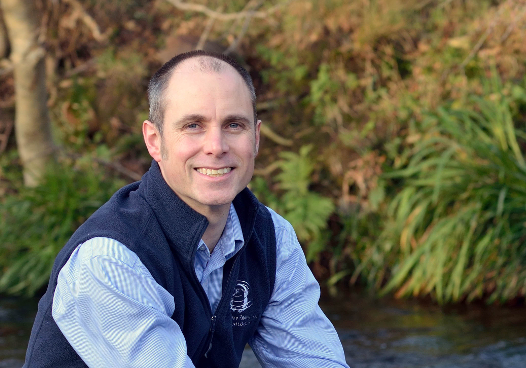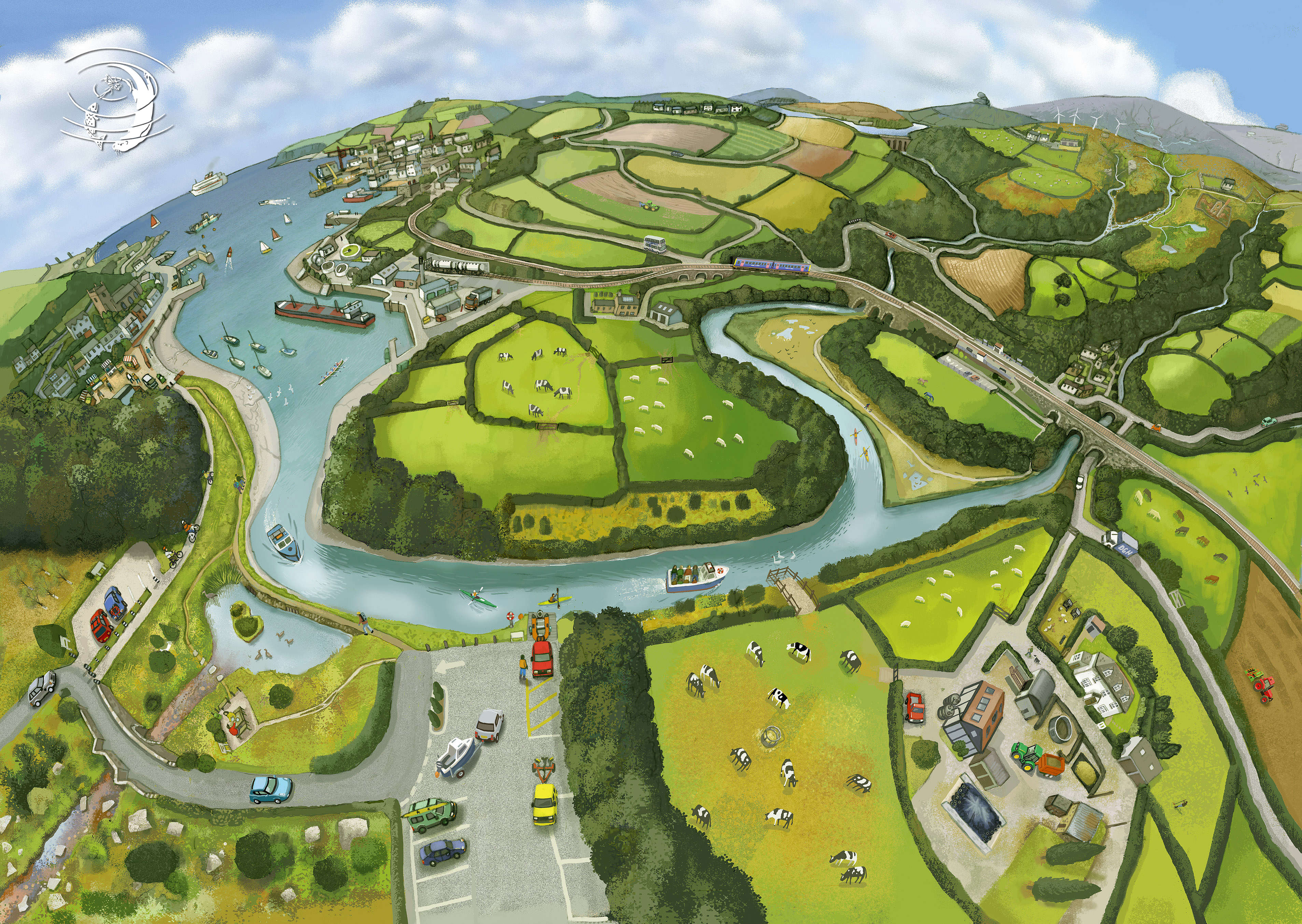Comment: Environmental Leadership

Laurence Couldrick
CEO, Westcountry Rivers Trust
After a BBC report that the Defra 25 year vision ‘Lacks policies’ and ‘may not even be published’, Dr Laurence Couldrick, CEO of Westcountry Rivers Trust, asks: is that the real problem?
If you look at any book on Leadership it will probably quote the African proverb ‘If you want to go fast – go alone. If you want to go far – go together’. This statement is easy enough to understand but the implications in its application are far reaching. At the core of our capitalistic society is an approach that works by excluding any negative impacts, whether they be on society or the environment, in the quest for economic gain. This approach has been in operation for hundreds of years and embraces the first part of the proverb – We go alone because we don’t want to acknowledge the losers.
This approach can work when the losers have a renewable supply of resources but for a long time our approach has been using up resources that our society and our planet cannot afford. The push against this has acknowledged the need for sustainable consumption and indeed modern businesses are now accounting for their social and environmental losses, as well as importantly avoiding, mitigating and compensating for their impact. This should be applauded but it does not go far enough if we really want to adapt to the need for economic growth alongside social and environmental growth. If this is our goal we will have to ‘go together’ and this requires real leadership.
“The environment is everything. It’s the parks, the gardens, the buildings, the trees, the rivers. It’s the thing that provides our food, our water, our energy. It has the potential to flood our homes and clean our air and water. It’s everything. Yet we regard it too often as nothing”
If we do want to ‘go far’ as a society, and with Brexit we certainly have the potential, we need environmental leadership not just within Defra but across Government and across society as a whole. But this means people in all sections of society considering societal and environmental losses and gains alongside economic ones, but this is hard when they are not overt.
The reason for this obscurity is not for want of trying but rather the environmental movement failing to engage because its message is perceived as a “bunch of tree hugging hippy c**p”. Collectively we need to overcome this barrier if we truly want to ‘go together’ but this doesn’t just require a change in the un-engaged Government departments and sectors in society, it requires a change in the environmental movement itself. We need to stop talking about the environment as designated sites or protected areas. Sure, these areas are important but let’s be clear they are not the environment.
The environment is everything. It’s the parks, the gardens, the buildings, the trees, the rivers. It’s the thing that provides our food, our water, our energy. It has the potential to flood our homes and clean our air and water. It’s everything. Yet we regard it too often as nothing. Our water comes from the tap, our food plastic wrapped from a supermarket, and the majority of our lives are based around a screen. We owe our existence to 6 inches of top soil and the fact that it rains, but most of us are totally and unequivocally disconnected from the environment. If we truly want to ‘go far’ this must change and everyone needs to play their part. Water companies, energy companies, supermarkets, food producers, builders and developers need to be telling the story of how the environment, and their sector, has the potential to provide benefits and create problems.
Government need to understand, account for and explain, in simple language, the knock-on impacts policies have on society and the environment. And the environmental movement needs to broaden its message from protection of designated habitats to include wider messages of sustainable living and simple examples that can make a difference.
This is environmental leadership. This is not just the preserve of the “green blob” but it is in the hands of all of us. We all have a part to play and it is vital – now more than ever – that we all do. If we can truly go together we will indeed go far.


Hear, hear Laurence.
Let us try to be less tribal to save more wildlife. Contesting evidence-based conservation ‘ideals’ risks failing to share evidence-informed ‘ideas’. We can work closer together on common problems – see my comment –
https://besplantsoileco.wordpress.com/2017/04/10/we-need-to-talk-about-nitrogen/ but do require stronger non-biased leadership (that must be govt of any hue) to bring increasingly entrenched value-driven partisan views to the table http://robyorke.co.uk/2016/04/harnessing-tension/
As for the wider civil society, formed of one of the highest urban-based populations globally, and largely disinterested in all this detail (sorry, but this is rarefied stuff to most), there is a huge generational change that just might be gaining traction. Rather than merely paying our subscription to a conservation organisation and then carrying on as before, we are perhaps looking at reducing food waste, less illegal connections of clean roof water to overloaded sewers, preparing to pay higher charges for renewable energy etc. These matters are now on the public radar.
Nuanced non-divisive social skills are now required to keep us moving forward together during these febrile and uncertain times.
Best, Rob
It’s the Externalities, stupid!